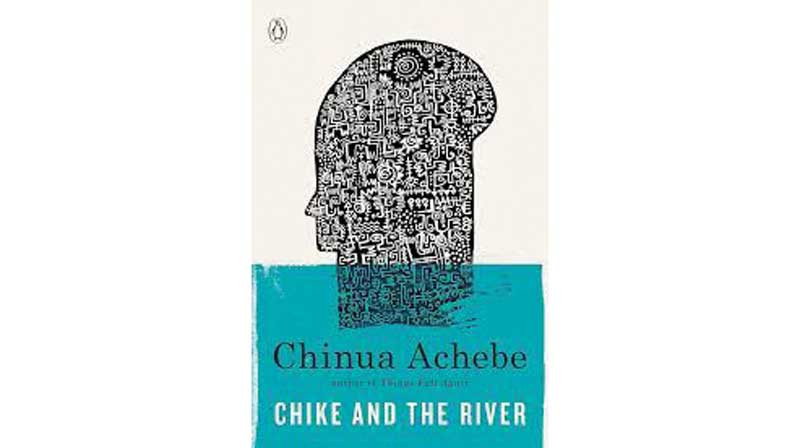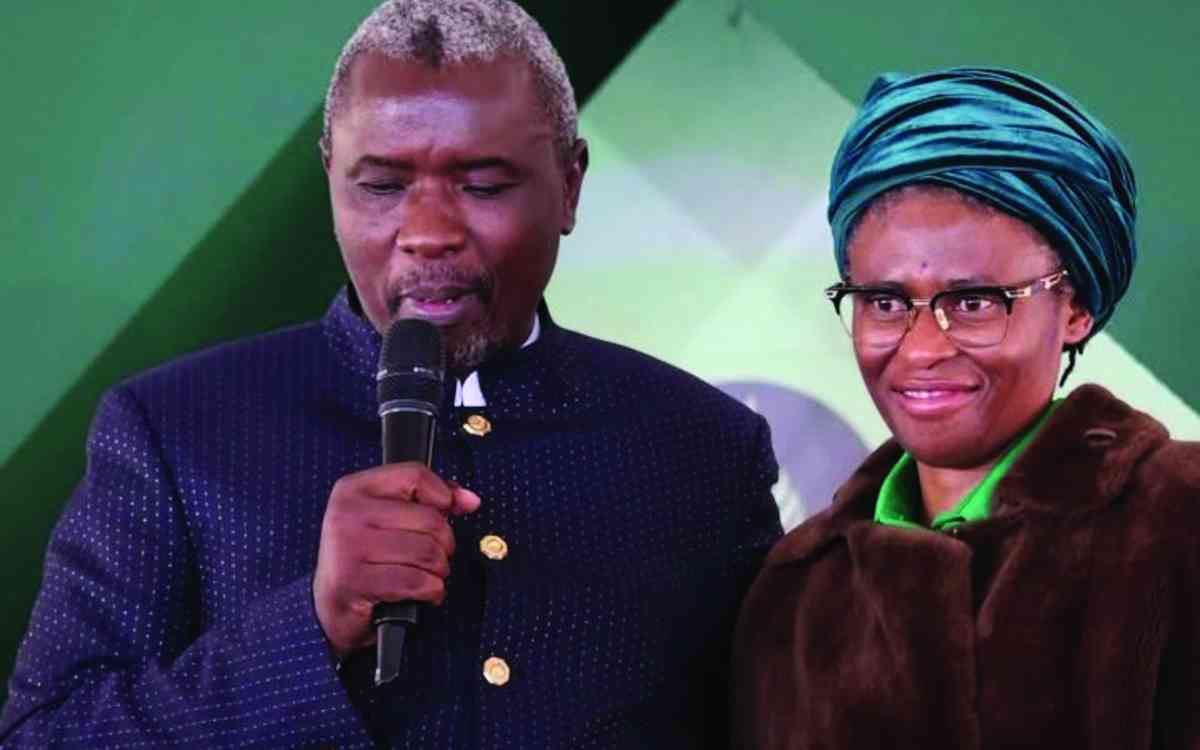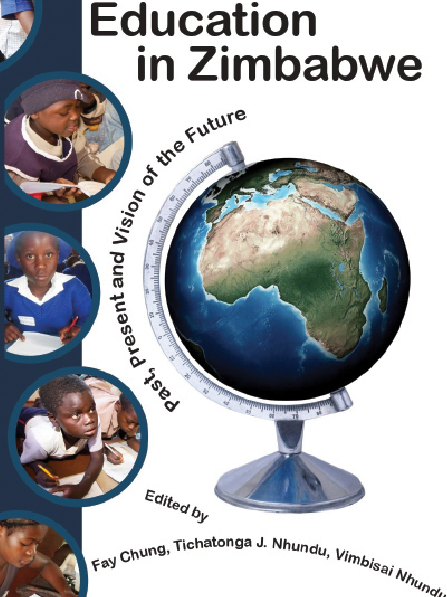
I dare say the great African writer; Chinua Achebe, has written certain works which tend to be overshadowed by his greater works. I will call these his minor works.
Achebe’s major works are clearly the novels; Things Fall Apart (1958), No Longer at Ease (1960), Arrow of God (1964), A Man of the People (1966) and Anthills of the Savannah (1987).
The great African author from Nigeria died on 21 March 2013 in Boston, United States. His oeuvre is well known throughout the world. I know people who can recite chunks and chunks of his pioneering novel, Things Fall Apart. That novel alone is also estimated to have sold millions of copies.
Achebe’s novels tend to overshadow his children’s stories, especially Chike and the River and his book of poems called Beware Soul Brother. This is because Achebe clearly set out in his career to be a novelist.
In Chike and the River, published by Heinemann in 1966, Chinua Achebe writes a simple adventure story presumably for children in the middle and upper primary school levels. It is a simple but educative story. It gives you opportunity to meet Achebe in different territory.
Chike is an eleven-year-old boy who lives with his mother and two sisters in the village of Umuofia. Chike’s father is long dead when the story begins and Chike’s mother looks after the family single handed. She grows most of the food they eat; yams, cassava, maize, beans, plantains and many green vegetables.
Chike’s mother also trades in dry fish, palm oil, kerosene and matches. Soon Chike’s uncle, an urban based civil servant, decides that Chike should leave the village and come and stay with him in the town of Onitsha. Chike is over excited because he has always had grand expectations of what a modern town should look like. Indeed when the time comes, Chike finds Onitsha big and more vibrant than the village of Umuofia.
But then Chike soon learns that in Umuofia every thief was known, but here, even people who live under the same roof are strangers to one another. Chike is told by his uncle’s servant that sometimes a man died in one room and his neighbour in the next room would be playing his gramophone!
- Building Narratives: Africa Day: We have to own our own narratives
- Building Narratives: Africa Day: We have to own our own narratives
- Village Rhapsody: Community-based rehabilitation post Covid-19 era
- Building narratives: Writing a book that sells
Keep Reading
Chike also discovers that that there are even bedbugs in Onitsha! The other thing that Chike does not like is the large number of other tenants living in the same house. For example, there are ten rooms in the house at which his uncle stays and more than fifty men, women and children living in them. There are also only two latrines in the yard for the fifty people! Chike quickly learns that a big modern Nigerian town is not always better than a village.
Chike makes several new friends but he is closest to one Samuel who calls himself SMOG. Immediately, Chike learns that it is actually easy to cross the great River Niger and come back to Onitsha the same day. All one needs is six pence to go over and another six pence for the return trip. It however takes the whole of this story for Chike to raise the six pence for going and the other six pence for returning. Eventually he learns that money is not easy to come by. He has to work for money. He learns that important life’s lesson rather painfully.
Chike’s uncle who is a rather strict man will not allow Chike to travel. He will not allow Chike to go play with boys his age. Uncle wants Chike to concentrate on schooling. Chike continues to be anxious to raise money for the trip across the Niger River.
In school, one of Chike’s friends, a spoilt boy called Ezekiel hatches a plan to make money and other fortunes. Ezekiel gets hold of names of three boys in England who wanted Nigerian pen friends. He writes to them asking one to send him money, another to send him a camera and the third to send him a pair of shoes. Ezekiel promises each of the boys a leopard skin in return! After a month Ezekiel receives some of these but he gets himself, Chike and others into trouble with the headmaster for it because eventually someone in England writes to the headmaster of the school about it. Chike learns that short cuts are not allowed in his community and that every citizen has a duty to protect the integrity of Nigeria.
Meanwhile, Chike continues to entertain thoughts to go see the river Niger and cross it. He remembers an early river story that he had heard in Umuofia from Sarah who sold snuff. She once told a story about a little bird and the River Niger itself.
Chike made his own version of the story: Once there was a quarrel between a little bird and the River. The river was full of scorn and contempt for the size of the bird and said, “Even the biggest bird in the air is beneath my notice. As for you, I think of you as a grain of sand. How long are you? Two inches. Do you know how long I am? Two thousand and six hundred miles! I come all the way from the Futa Jalon Mountains through five countries. Get out of my sight.”
The little bird swooped down on the river and sipped a mouthful of water and swallowed it. Then he said to the River: “However great you may be, I have now reduced you by a drop. You are smaller than you were this morning. Come and catch me if you can.” And with that he flew away proudly. The River thought about it and realised too that there was one thing a river could not do. It could not fly…
Chike’s interest in the River Niger probably began from the day he heard that story. Soon Chike finds a temporary job and earns money and is finally able to cross the Niger River. On the boat, crossing over the river to Asaba, Chike wonders whether it was really him crossing over! “So this is true?” he thought. “Chike Anene alias Chike the boy, of Umuofia, Mbaino district, Onitsha Province, Eastern Nigeria, West Africa, Africa, World, Universe.”
Chike discovers that although he had expected Asaba to be better than any place he had seen, the air felt the same, the soil had the same look and the people went about their business in the same manner! But Chike was happy about one thing: he could now talk like the rest of his companions.
Soon, Chike is involved with robbers during the night and after hair rousing trials and tribulations, Chiko gets the robbers arrested before he returns across the river to continue with his school. He receives great awards and he becomes well known too.
The other less known and therefore a minor book of Achebe is his poetry collection, Beware Soul Brother. Achebe wrote these poems during the Biafra war which took place between 1967 and 70. The Nigerian Civil War also known as the Nigerian-Biafran War or the Biafran War was a civil war fought between Nigeria and the Republic of Biafra, a secessionist state which had declared its independence from Nigeria in 1967. Nigeria was led by General Yakubu Gowon, while Biafra was led by Lt. Colonel Chukwuemeka 'Emeka' Odumegwu Ojukwu.
The years of this Nigerian crisis and civil war were not, for both practical and psychological reasons, a time for work of full length novels. Achebe who was involved in one of the sides, found poetry a means of expressing his distress, even though a few of the poems speak directly of the war. In an interview with Lindfors, Achebe says: “Yes, but not novels. I do articles and some poetry, but I can't do more than that. I started a novel just before the war which seemed to me at the time terribly important-I had already had the idea for it as far back as '66-but I finally gave it up because it later seemed to me completely unimportant.... I can create, but of course not the kind of thing I created when I was at ease. I can't write a novel now; I wouldn't want to. And even if I wanted to, I couldn't.... I can write poetry-something short, intense, more in keeping with my mood...”
Chinua Achebe’s poems in Beware Soul Brother are most probably the most dense and impenetrable of all his works! Sometimes I find the poems rather frustrating. The language is personal and the allusions are steeped in local Ibo lore.
In some of these poems, the poet, as in Love Cycle, gazes at the sky and marvels at how the sun withdraws his tenderness from earth in the morning and starts to be a harsh and hot dictator. The earth, long used to all this, awaits evening “when thoughts of another night will restore his (the sun’s) mellowness and restore earth’s power over sun.” It is a poem most probably written at the spare of the moment and kept somewhere. It is a poem meant to keep the poet in touch with his private thoughts in the midst of all the upheavals. It is short, calm and very economic on words. It silently talks about the relations between those who have a lot of power and those without any power.
The poem Misunderstanding is a philosophical piece, crafted and based on the poet’s personal memory of his father’s favourite saying when in conversation with the poet’s mother, “Wherever something stands, there also something else will stand.”
Later in years, the poet (Achebe) catches himself repeating the same dictum to his own wife during conversations! In his notes that accompany this poem, Achebe explains that the poem Misunderstanding is actually based on the fact that the Ibo people, to whom he belongs, have a firm belief in the duality of things. Nothing is by itself, nothing is absolute. The Ibo say that a man may be right by Udo and yet be killed Ogwugwu; in other words he may worship one god to perfection and yet fall foul of another! Many Ibo proverbs are said to bring out this duality about life.
Ibo thought colours most of these poems, as can be seen in the other poem called Those Gods are Children, which drives home the attitude of the Ibo people to their gods. The poem shows an attitude or a world view that says the land of the spirits is a territorial extension of the human domain. Thus a man is not entirely without authority in dealing with the spirit world, he is not entirely at its mercy. The deified spirits of his ancestors look after his welfare; in return he offers them sustenance regularly in the form of sacrifice.
In his longer poem called We laughed at Him which is the last piece in this collection appears to dwell on the gulf that occurs between what the general people see from what an artist or an inspired person sees. Even without the eyes, the man/artsis in the poem continues to see!
The other very tense and locked poem, simply etitled 1966, appear to dwell on the causes of the Biafran war, which was the indolence of leadership that led suddenly to conflict. The poem cascades down the page, dripping with afterthought, conjecture and deep feelings:
“absentminded
our thoughtless days
sat at dire controls
and played indolently
slowly downward in remote
subterranean shaft
a diamond-tipped
drill point crept closer
to residual chaos to
rare artesian hatred
that once squirted warm
blood in God’s face
confirming His first
disappointment in Eden”
It is not a poem that invites you to understand issues but to show you selected people’s contemplation on what led to the Biafran war.
About the reviewer
Memory Chirere is a Zimbabwean writer. He enjoys reading and writing short stories and some of his are published in Nomore Plastic Balls (1999), A Roof to Repair (2000), Writing Still (2003) and Creatures Graet and Small(2005). He has published short story books; Somewhere in This Country (2006), Tudikidiki (2007)and Toriro and His Goats (2010).Together with Maurice Vambe, he compiled and edited (so far the only full volume critical text on Mungoshi called): Charles Mungoshi: A Critical Reader (2006) His new book is a 2014 collection of poems entitled: Bhuku Risina Basa Nekuti Rakanyorwa Masikati. He is with the University of Zimbabwe (in Harare) where he lectures in literature. Email: [email protected]











